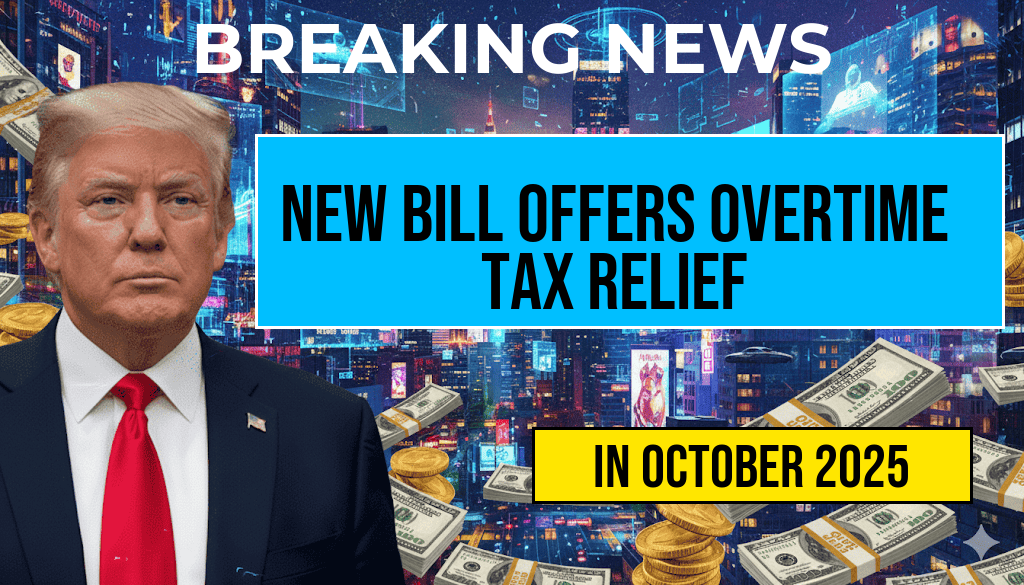In a significant move aimed at easing the financial burden on American workers, a newly proposed bill has been introduced in Congress that allows employees to protect up to $12,500 from their taxable income through overtime relief. This legislation seeks to revise existing tax codes that have long been a source of contention for workers logging extensive hours without corresponding financial compensation. Advocates argue that by increasing the threshold for tax-exempt overtime earnings, the bill will not only bolster take-home pay for millions of Americans but also stimulate consumer spending, thereby benefiting the broader economy.
Key Provisions of the Bill
The bill, known as the Overtime Tax Relief Act, encompasses several key provisions designed to provide immediate relief to workers. Below are the primary elements:
- Tax Exemption Limit: Employees can now exempt up to $12,500 in overtime earnings from their taxable income.
- Eligibility Criteria: The exemption applies to all workers classified as non-exempt under the Fair Labor Standards Act (FLSA).
- Implementation Timeline: If passed, the new regulations would go into effect at the start of the next fiscal year.
Support and Opposition
The introduction of the Overtime Tax Relief Act has garnered mixed reactions from various stakeholders. Labor unions and worker advocacy groups have largely welcomed the bill, viewing it as a necessary step toward ensuring fair compensation for overtime work. According to the AFL-CIO, this legislation represents a crucial advancement in the ongoing fight for workers’ rights.
However, some business organizations have expressed concerns regarding the potential financial implications. The National Federation of Independent Business (NFIB) argues that while the intent of the bill is commendable, it could lead to increased labor costs for small businesses, which are still recovering from the economic impact of the COVID-19 pandemic. Critics fear that these additional expenses may result in reduced hiring or even layoffs.
Economic Implications
Economic analysts are closely monitoring the potential impacts of this bill. Proponents contend that allowing workers to keep a larger portion of their earnings could lead to a boost in consumer spending, which is vital for the recovery of the economy post-pandemic. A report from the Brookings Institution indicates that increased disposable income could stimulate demand across various sectors, from retail to services.
On the other hand, some economists caution against the bill’s ramifications on inflation. If businesses pass on the costs associated with the tax exemption to consumers, it could lead to higher prices on goods and services, potentially counteracting the intended benefits for workers.
Public Opinion
Public sentiment appears to be shifting in favor of the Overtime Tax Relief Act. Recent surveys indicate that a significant majority of Americans support measures aimed at increasing wages and providing tax relief for overtime work. According to a Pew Research Center poll, 67% of respondents believe that workers deserve fair compensation for their overtime hours, aligning with the objectives of the proposed legislation.
Next Steps
The Overtime Tax Relief Act is currently in the committee stage, where it will undergo further scrutiny and potential amendments before being brought to the floor for a vote. Lawmakers are optimistic about its passage, given the growing bipartisan acknowledgment of the challenges faced by workers, particularly in an increasingly demanding job market.
Conclusion
As discussions continue, the future of the Overtime Tax Relief Act remains uncertain. However, the bill has sparked a vital dialogue about worker rights and compensation in the modern workforce. As Congress evaluates the potential benefits and drawbacks of this legislation, millions of American workers wait with bated breath for a decision that could significantly impact their financial well-being.
Frequently Asked Questions
What is the purpose of the new bill regarding overtime relief?
The new bill aims to provide overtime relief by allowing individuals to protect up to $12,500 from their taxable income, thereby reducing their overall tax burden.
Who will benefit from the overtime relief provided by the bill?
The bill is designed to benefit employees who work overtime hours, ensuring that they can retain more of their earnings by lowering their taxable income.
How does the $12,500 protection from taxable income work?
Under the new legislation, individuals can exclude up to $12,500 of their overtime earnings from their taxable income, which can significantly reduce the amount of taxes owed.
When will the new bill take effect?
The effective date of the new bill has not yet been specified, but it is anticipated that it will be implemented in the upcoming tax year.
Are there any eligibility requirements to take advantage of this overtime relief?
Yes, to qualify for the overtime relief, individuals must meet specific employment criteria, which will be outlined in the final regulations of the bill once it is enacted.






